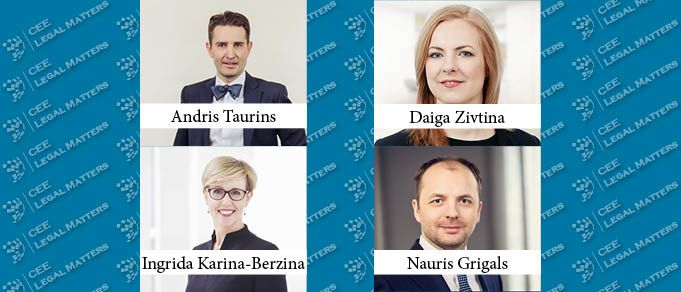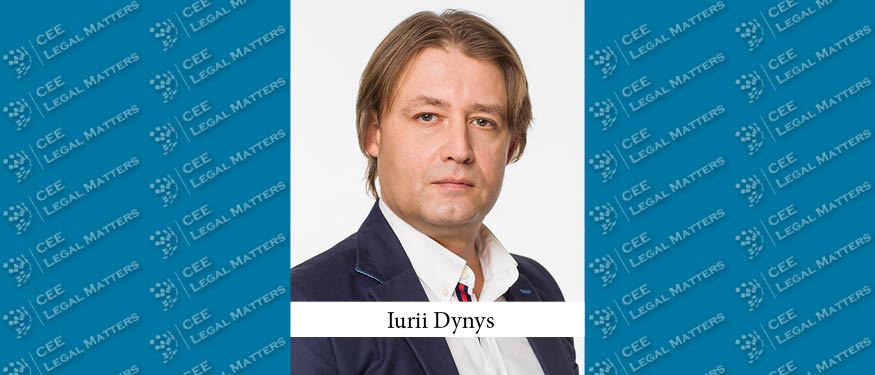Latvia’s Leading Commercial Lawyers Consider the Country’s New Economic Affairs Court
On November 5th, 2019, the Latvian Government approved a plan proposed by the country’s Justice Ministry to establish a Specialized Economic Affairs Court – a first-instance court designed, in the words of Latvia’s Ministry of Justice, to “ensure rapid and high-quality proceedings concerning complex commercial disputes, corruption, economic and financial crimes.”
The first instance court in Riga, initially sitting ten judges, is expected to begin hearing cases on January 1, 2021, with a specialized panel of judges at Riga Regional Court empowered to hear appeals. According to Latvia’s Government, the identity of the judges who will be serving on the court will be announced in March 2020, and their training will begin shortly thereafter. The specific infrastructure and venue will be settled in December.
The court’s establishment is part of an ongoing effort to demonstrate that the country has turned a corner in prosecuting financial crimes, as Latvia seeks to shed its reputation of being soft on money laundering, offshore tax- evasion, and other similar financial sector crimes.
Overall Approval from Latvia’s Lawyers
Overall, the response from Latvia’s business law community has been positive.
According to Cobalt Partner Ingrida Karina-Berzina, “business needs have changed during the last decades and business-related cases are becoming more and more complicated than they used to be 20 years ago when a regular court could handle these matters. The cases have become exceedingly complex, and this is one of the reasons why the new court needs very professional and courageous judges [to] preside over proceedings … and use their business-oriented knowledge when drafting their rulings.”
“The proposed benefits [of the court] are highly related to Latvia’s needs,” says Ellex Klavins Partner Daiga Zivtina. According to her, the success of the country in creating new courts in the past suggests this experiment is likely to work as well. “We have had some examples of similar courts that showed great results, such as the Administrative Court and a court which specializes in resolving disputes concerning the hostile takeover of companies. The rulings of those courts are understandable and business-oriented, which is what the Ministry of Justice wants to achieve with this court.”
Finally, Zivtina says, the need to convey an affective and constant rule of law to outsiders is critical as well. “Investors know that Latvia is a small country that has suffered from various economy-related issues,” she says. “They need to feel like there are courts that will grant them the protection they seek to invest. I think that we are on the right path.”
Andris Taurins, Partner at Sorainen in Riga, is also enthusiastic about the prospects of the new court. “I expect this reform to lead to a positive outcome,” he says. One key element, he believes, is making sure that the judges are prepared for the kind of complicated and challenging cases that they are likely to face – and which have sometimes posed problems for less-experienced courts. “The plan,” he says, “is to train judges so that they can take on complex, economy-related disputes.”
TGS Baltic Partner Nauris Grigals adds his voice to the enthusiastic chorus. “When knowledge is accumulated and the judges’ only job is to review a very specific type of case, the time they need to reach a decision is shortened. The indirect benefit is, of course, a better business environment and more trust of the investors in the court system in Latvia.”
External European Examples
Although Latvia’s Economic Affairs Court will be the first such court in the Baltics, specialized courts are not a rarity in Europe. Ellex Klavins’ Daiga Zivtina points to the Court for Employment Matters in Helsinki and Commercial Courts in the Netherlands are successful examples of experiments elsewhere. “They work with great efficiency and speed in dealing with specific matters,” she says.
“Similar courts in Denmark and Sweden are the examples we should follow on how to set our court up,” Cobalt’s Karina-Berzina says. “However, while most specialized courts in Europe only handle civil cases, the specialized economic affairs court in Latvia will have jurisdiction for both civil and criminal disputes, including economic crimes, money laundering, commercial disputes, all of which can be extremely complex.”
“There are several countries that have courts specially designed for certain issues,” agrees Sorainen’s Andris Taurins. “The World Bank says that over 100 jurisdictions have implemented such measures, including European countries such as Austria, Belgium, Ireland, and Croatia.” Still, he emphasizes, that doesn’t mean Latvia can simply copy another country’s model and be done with it. “Each country has different needs and different ways of solving their problems, so I believe we can’t just copy the same model. We need to understand the specific problems and find specific solutions.”
Judges Object
Certainly, most of the Latvia’s government supports the creation of the specialized Economic Affairs Court, and the country’s Justice Minister, Janis Bordans, has claimed that it “could be a turning point for the Latvian court system.”
However, not everyone is as confident about the decision to establish the court. The country’s Justice Council has objected to the proposal, as have several of the country’s Supreme Court judges. Latvia’s Interior Minister Sandis Girgens has raised his voice in objection to the court as well, claiming that in moving to support it, the government did not give full consideration to the objections raised by the Judicial Council.
But TGS Baltic’s Grigals believes that those objections suggest that the Council and various judges means that they “take the creation of the court as an offense regarding their capabilities. Their main arguments are mainly focused on the lack of need to create anything so specific and that you can just specialize judges in the existing court system.” He believes those claims are, ultimately, wrong. “I tend to disagree. It’s still better to have trained judges all at one spot, instead of scattered around the country, with previous experience in a given field. If we look at how complicated these cases are, I think it’s better to have people work together and share knowledge to solve the cases faster and with greater quality.”
Andris Taurins, however, is more sympathetic to the points made by Latvia’s Judicial Council. According to him, the Council “feels like the problem wasn’t discussed enough, that the proposed outcomes are in some segments utopian, and that this is not the best way to solve existing problems.” While reiterating his general support for the court, Taurins suggests that some of these concerns may have merit. “The entire procedure needs to be fixed, which is a much harder job than creating a court itself, but also since we are still talking about incredibly complex ideas, I am unsure how this will reduce the time it takes to reach a decision.” He also wonders about the limited time to prepare. “It’s also worth noting that everything has to be done before January 2021,” he says. “That means that they have less than a year to set up all systems, train and hire people, and do all of the administrative work. The problem here is that nobody can tell with certainty which cases will be adjudicated and why.”
Taurins points to changing descriptions of the court’s proposed jurisdiction. “The latest proposal presented in January differs very much from the one presented a half year ago,” he says. “For example, now the draft law provides that the new court, in addition to other matters, will adjudicate matters related to trade secrets and liability in the building industry. Yet, the authors of the reform have removed crimes related to fraud and tax evasion from the list.” There’s more, he says. “If the plan is to entrust the new court with complex commercial disputes, why, for example, are IT disputes not included? They tend to be as complex as trade secret matters or even more complicated.” He sighs. “All of the above means that currently, we have more questions than answers – and that we need more time and more discussion.”
Ultimately, Taurins says, the rush to have the court begin in January of next year means “risking that a good idea might fail because we lacked discussion and planning. We need to be brave and look at the facts – the idea is not sufficiently thought through.”
Karina-Berzina dismisses such objections. “In each of the countries where specialized courts exist, somebody used to be against it,” she says. “That’s mostly because the idea is new and yet untested. The same is true for Latvia, but I don’t see any evident reasons for opposition, apart from a group of people that are already abusing power. Judges are split, and those who oppose it give two reasons: First, a new court could create unnecessary competition with the existing courts, and second, such a court is not a top priority.” She doesn’t find those objections compelling, and she points out that “the local business community and investors still favor it.”
Indeed, although Karina-Berzina concedes that “in order to implement the Economic Affairs Court there are three laws that need to amended – the Civil Procedure Law, Criminal Procedure Law and the Law of Power of the Courts,” she emphasizes that “there is no need to build a new system, no significant changes to the procedural rules, and the court will initially only recruit and train ten judges.” In addition, she points out, “unlike other countries such as Benelux, where proceedings can also be held in English, the proceedings [here] will take place only in Latvian.” As a result, she says, “all in all, there is no reason to panic.”
On Balance
Overall, Latvia’s leading business lawyers seem enthusiastic about the prospects of the new Specialized Economic Court. According to Karina-Berzina, “court cases based on complex commercial disputes or economic crimes are complicated, and litigation in such cases can sometimes exceed a decade. This is a much-needed change, and I hope that this will be an important step toward a better business environment, which will be beneficial for everyone.”
Nauris Grigals has the last word. “If we can count on having great judges, ready and willing to work, I think that these complicated issues will be resolved faster and better. Frankly, this is a thing Latvia needs.”
This Article was originally published in Issue 7.2 of the CEE Legal Matters Magazine. If you would like to receive a hard copy of the magazine, you can subscribe here.

















